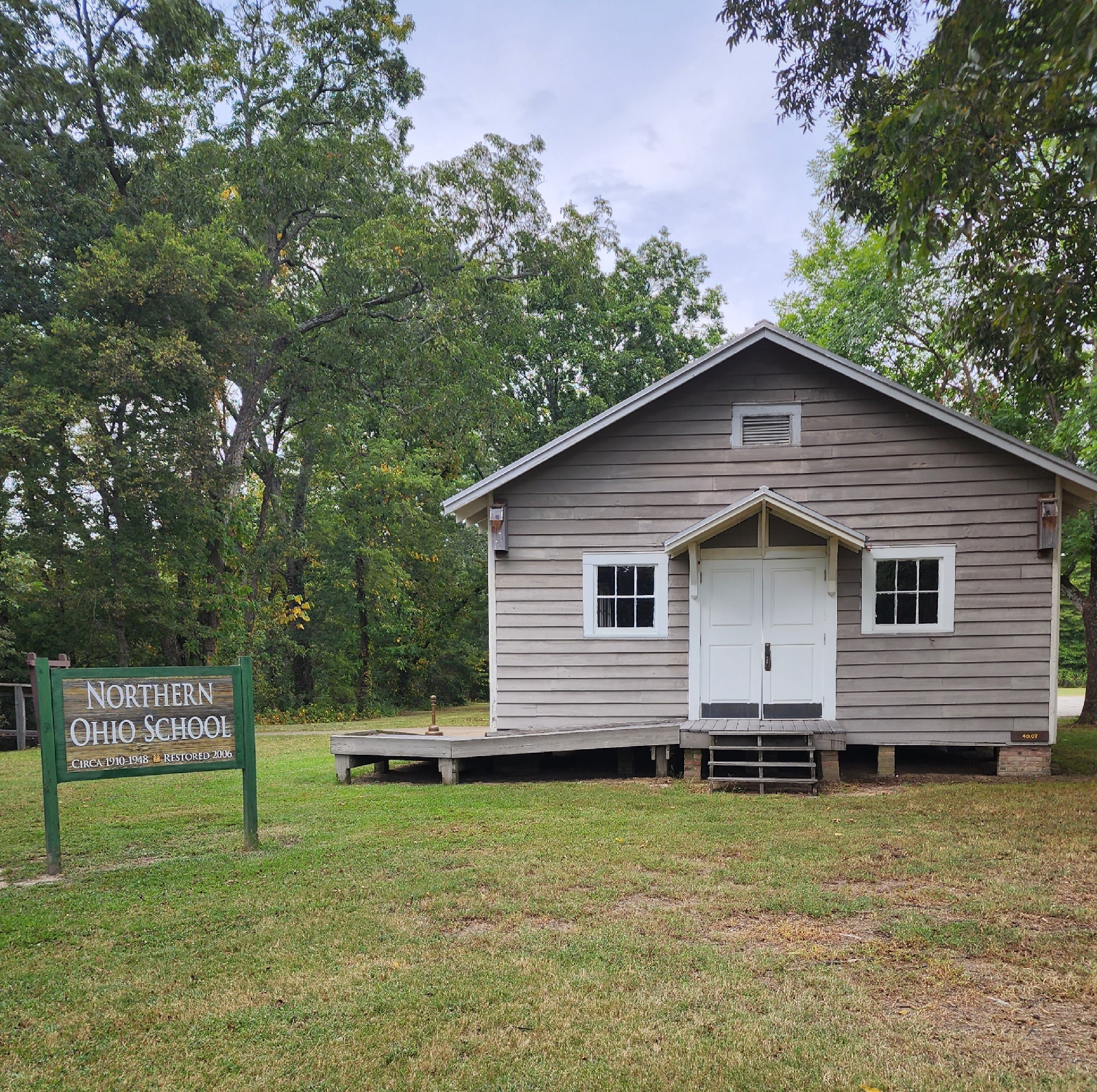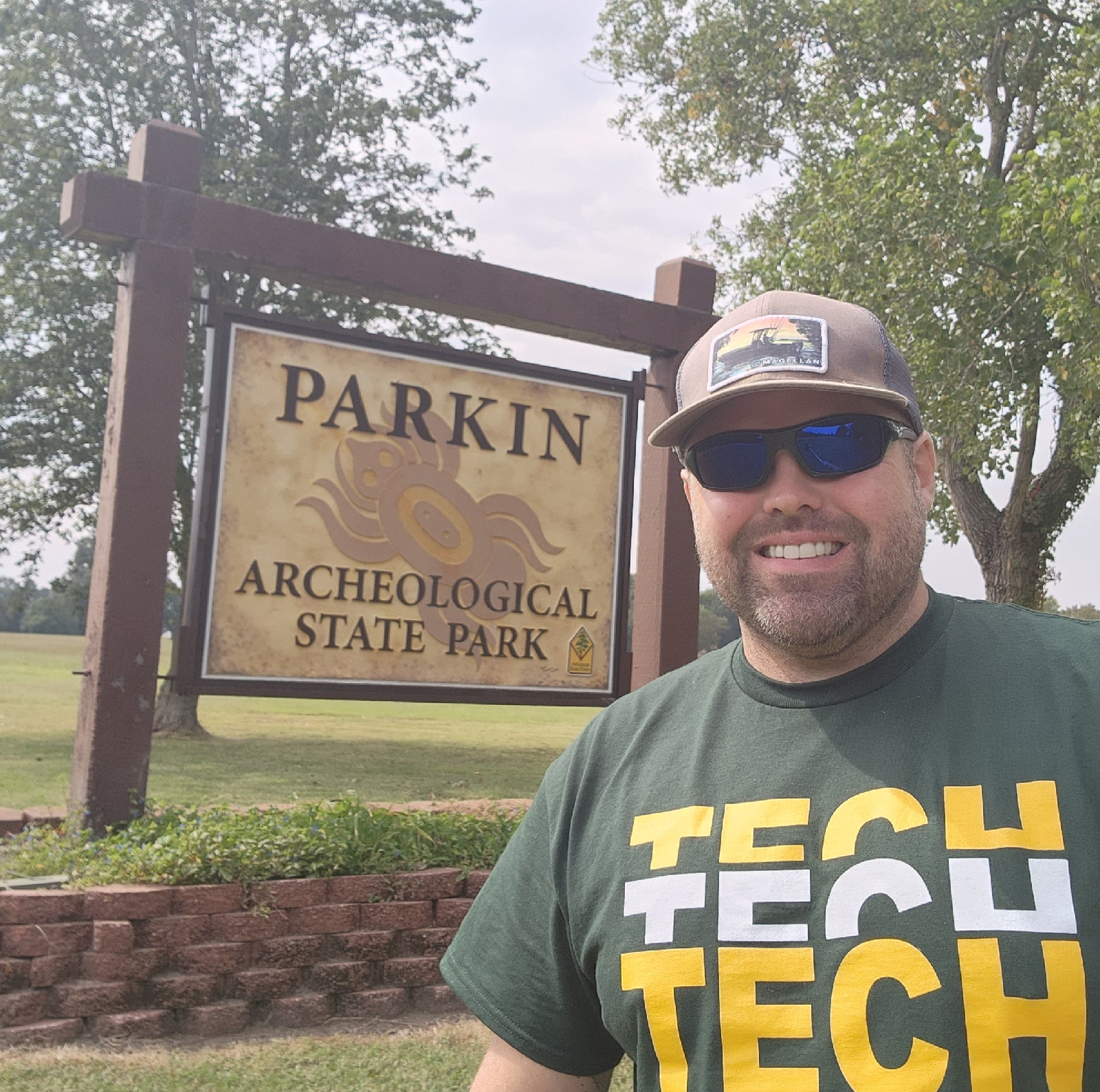Entry 47: Exploring the Ancient Past at Parkin Archaeological State Park
Situated in eastern Arkansas near the town of Parkin (yes, that's the name!), Parkin Archaeological State Park preserves the site of the Native American village of Casqui—an ancient Mississippian-period settlement dating back to roughly A.D. 1350–1650. This significant archaeological site is home to a platform mound, plaza, and the remains of other village structures that offer a glimpse into the lives of the indigenous people who once thrived here.
Parkin is believed to have been a major cultural and economic hub. The park's visitor center features a museum with fascinating artifacts uncovered during archaeological digs, providing rich insight into the customs, tools, and trade practices of the Mississippian culture. It’s a powerful reminder of Arkansas’s deep pre-Columbian history.
The site, listed as a National Historic Landmark, also has ties to early European exploration—evidence suggests Hernando de Soto visited the village in 1541. Interpretive programs and exhibits offer year-round opportunities to learn more through guided tours, special events, and living history demonstrations.
Beyond the archaeology, the park includes a historic schoolhouse from the 1920s-era Northern Ohio Lumber Cooperage Company. Guests can enjoy a self-guided tour, stroll the peaceful trails, explore the riverside, or picnic in one of the scenic day-use areas. There's even a boat ramp offering access to the nearby St. Francis River.
Why I’m an Advocate for State Parks
State parks are more than just green spaces—they are essential for preserving natural and cultural heritage. They offer accessible recreation, support local economies, and provide unique opportunities for education and exploration. By supporting state parks like Parkin, we protect our shared past and promote outdoor experiences that connect us to the land and each other.
Places to Visit Nearby
-
Hampson Archeological Museum State Park (Wilson, AR) – Another Mississippian-era site with fascinating artifacts and a beautifully designed museum space.
-
Crowley’s Ridge Nature Center (Jonesboro, AR) – Offers interactive exhibits, trails, and wildlife-viewing opportunities highlighting the unique ecosystem of the ridge.
-
Delta Cultural Center (Helena, AR) – A hub for learning about the Mississippi Delta’s history, music, and heritage, including the Civil War and blues music.
Family-Friendly Places to Eat Nearby
-
Southern Eatery (Wynne, AR) – Comfort food and southern classics in a cozy, family-friendly atmosphere.
-
Puddin’ Ridge BBQ (Parkin, AR) – A hidden gem serving up barbecue favorites and local hospitality.
-
Blue Bridge Coffee (Forrest City, AR) – A good spot for coffee, pastries, and light fare on your way to or from the park.
#mikeisoutside #arkansas #arkansasstateparks #stateparks #statepark #tourism #gooutside #getoutside #outdoorrecreation #nativeamerican #indigenous #archeology




.jpg)
.jpg)
Comments
Post a Comment